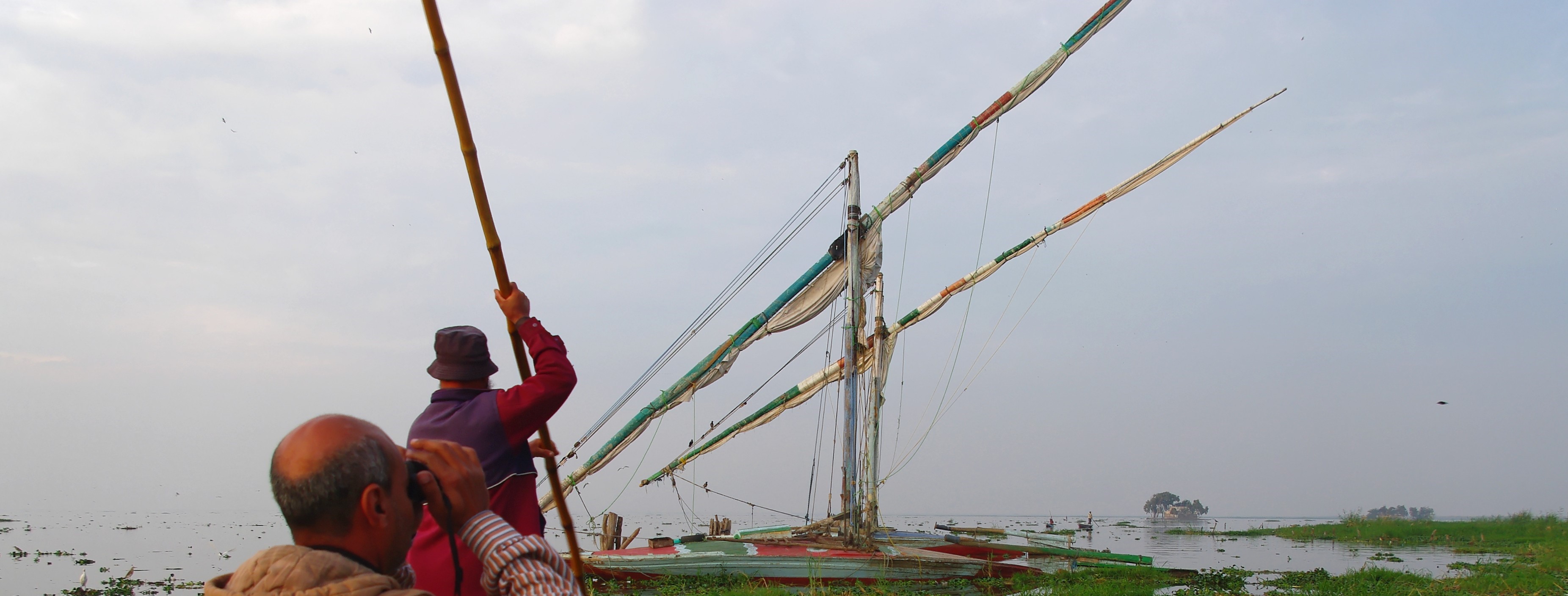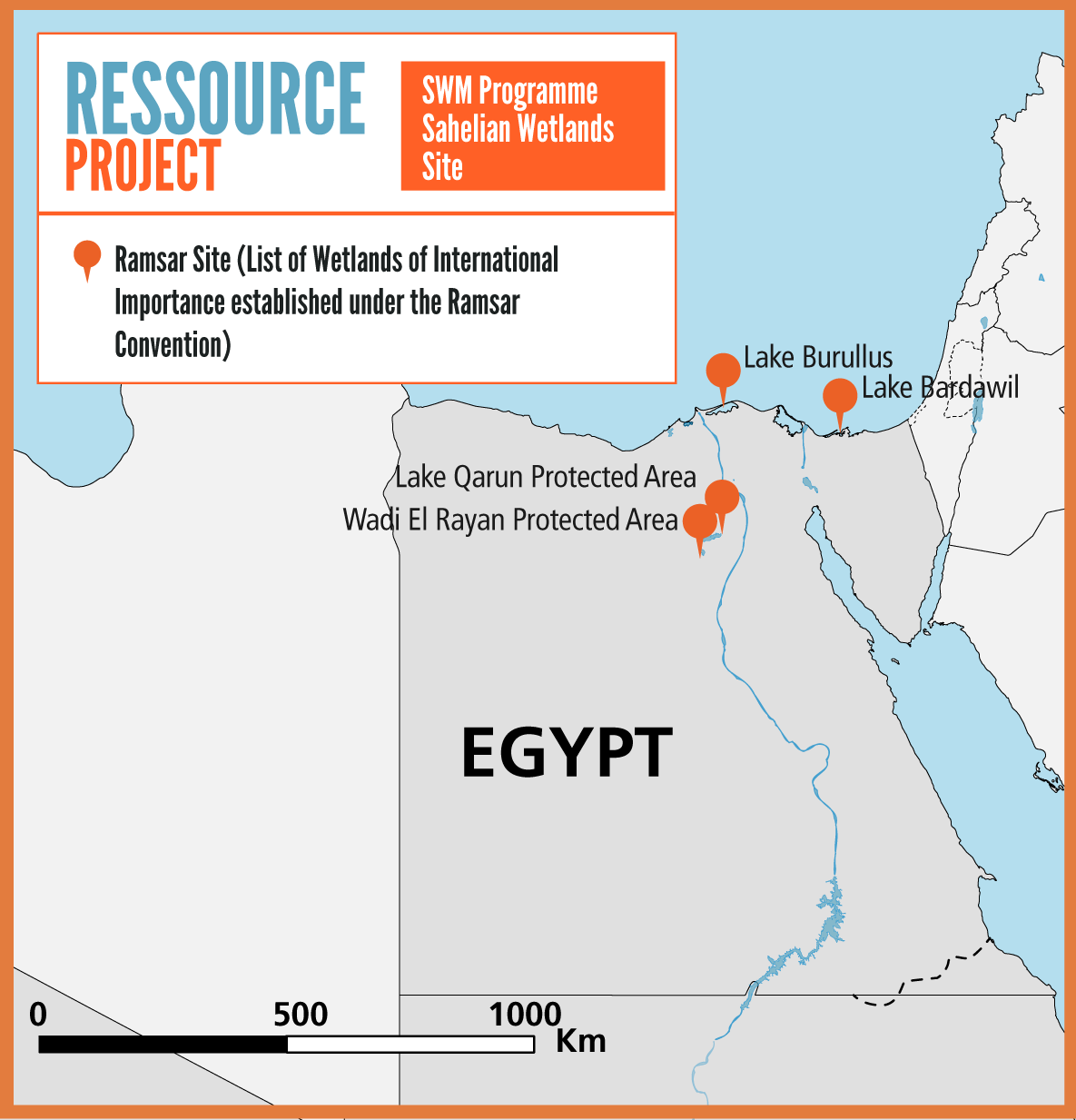Legal Hub/Egypt
LEGAL HUB/EGYPT

BACKGROUND
Country legal hubs are a user-friendly point of access to a comprehensive set of data and analysis on the statutory legal frameworks relating to sustainable management of wildlife and habitats.
For the countries of the Sahelian wetland site (RESSOURCE Project), the analyses relate to the level of transposition into national law of two international legal instruments applicable to waterbirds and wetlands, namely the Ramsar Convention and the AEWA.
Each platform provides:
• historical and political background of the country;
• access to relevant national normative texts by sector;
• overview of the domestication of the two international instruments.
NATIONAL PARTNER


LEGAL AND POLITICAL CONTEXT

Political system: Republic; semi-presidential regime; Parliament and Senate.
Administrative and territorial organization: Unitary government. The State is divided into local administrative units that have a legal personality, which include governorates, cities and villages.
Legal system: Civil law system combined with Islamic (sharia) principles.
International Conventions: Monist system
Modern Egypt dates back to 1922, when it gained independence from the British Empire becoming a monarchy. Following the 1952 Revolution, Egypt declared itself a republic, and in 1958, it merged with Syria to form the United Arab Republic, which dissolved in 1961.
The 1960 Local Administration Law provides for three levels of subnational administration: muḥāfaẓāt (governorates), markaz (districts or counties), and qariyyah (villages). The structure combines features of both local administration and local self-government. There are two councils at each administrative level: an elected people’s council and an executive council that is appointed. Although these councils exercise legislative powers at the governorate level through issuing decrees from Governors, they are controlled by the central government. The country is divided into 27 governorates.
The Egyptian Constitution proclaims the Arab Republic of Egypt to be a democratic state with Islam as its state religion and Arabic as its national language. The President of the Republic is the head of state and, together with the cabinet, constitutes the executive authority. The president appoints the prime minister (who is the head of government), ministers, and deputy ministers.
The House of Representatives is entrusted with legislative authority and with approving the general policy of the state, the general plan of economic and social development and the state budget. The Senate is tasked primarily with providing opinions and proposals on matters of national unity, social cohesion, government structure and constitutional amendments.
Based on Constitution, judges are not subject to any authority other than the law; they cannot be dismissed and are disciplined in the manner prescribed by law. The Court of Cassation is the highest court of appeal and has the power to override the rulings of lower courts. The Council of State is a separate judicial body, dealing especially with administrative disputes and disciplinary actions. The Supreme Constitutional Court in Cairo is the highest court in Egypt. Its functions include judicial review of the constitutionality of laws and the resolution of judicial conflicts among the courts. In addition, the criminal code makes also reference to military courts’ jurisdiction for public law crimes such as terrorism, which may also include causing harm to the environment.
The civil and penal codes as well as court procedure are based on French law, but are influenced by sharia principles. Personal status issues – such as marriage, divorce, and inheritance – are adjudicated by Family Courts, although these courts still take into consideration the statutes of sharia (Islamic law), the Coptic Orthodox Church and other Christian institutions.
With regard to international conventions, the 2014 Constitution entrenches the monist system in Egypt. According to Article 151 of the Constitution, the President of the Republic concludes treaties and ratifies them after the approval of the Parliament, and they have the force of law after their publication.
LEGAL FRAMEWORK
This section provides access to a list of statutory instruments specific to each sector that can be consulted and downloaded.
DOMESTICATION OF RATIFIED INTERNATIONAL INSTRUMENTS
Convention on Wetlands of International Importance especially as Waterfowl Habitat (Ramsar)
See moreDate: 09 September 1988
Agreement on the Conservation of African-Eurasian Migratory Waterbirds (AEWA)
See moreDate: 01 January 1999
